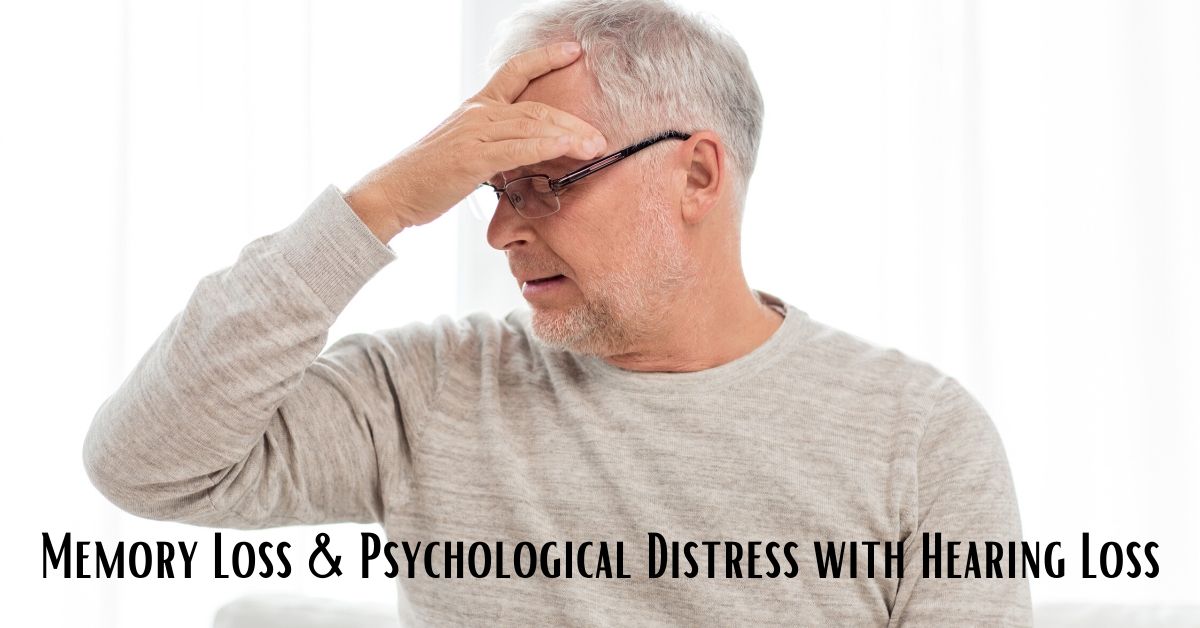All About Bluetooth Hearing Aids
Do you remember the hearing aids your parents or grandparents used to

By: admin | May 21, 2020
Do you feel you’ve been having a harder time understanding what people are saying to you recently? As you age the risk of hearing loss becomes more likely, affecting 1 in 3 people over the age of 65 and nearly half of those over 75. Hearing loss is the world’s fourth-leading cause from long-term disability with approximately 466 million people affected. While hearing loss alone is a serious condition, it is the many side effects that are a real concern. As total physical and mental health are all connected, untreated hearing loss has been found to exasperate an array of mental, physical, and social complications.
Hearing loss affects our ability to communicate effectively. We struggle to participate in conversation with our friends, over the phone, with loved ones and at work. This has far reaching consequences for our mental health, leading to depression, anxiety, insomnia and self-isolation. Not only that but our brain struggles to hear when our hearing ability breaks down. As our brain strains to put together conversation, with limited information this can lead to exhaustion and cognitive strain. Potential physical health impacts from untreated hearing loss include headaches, muscle tension, and increased stress blood pressure levels and higher risks of accidents as people become less aware of their environment. Many studies have even linked untreated hearing loss with a much higher risk of dementia and impaired memory.
A recent study from the University of Tsukuba in Japan examined the likelihood of reduced social activity, higher psychological distress and memory loss, when faced with untreated hearing loss. The researchers found hearing loss had a clear link with all three, especially memory loss. The researchers based their information on a 2016 large Survey of Living Conditions of Japan, which collected self-reported information from over 220,000 households. The team focused on 137,723 survey participants aged 65 or older without dementia.
The result of the study, published in the journal, Geriatrics & Gerontology International found that Among the 9 percent who reported hearing loss, 37.7 percent also self reported some memory loss, while only 5.2 percent of those with healthy hearing reported memory loss. This is a significant gap linking hearing loss and memory loss for seniors of Japan as the study also revealed that these conditions became more prevalent with age. “Japan is the world’s most rapidly aging country, and this is a large and compelling data set of its citizens,” lead author Masao Iwagami said. “It was a solid foundation for examining correlations between hearing loss and three key problems: outdoor activity limitations, psychological distress, and memory loss.” Seniors with hearing loss who reported a reduction of outdoor activities were 28.9% as opposed to those with 9.5% of those without a hearing loss. Seniors who reported psychological distress equaled 39.7% vs. 19.3% without. However, the biggest disparity was among those with hearing loss and memory loss.
This information only gives us more information into the importance of dealing with hearing loss rather than ignoring it. If you are living with untreated hearing loss you are putting even more than your mental and physical health, but the memories that help to make you who you are. “Hearing loss takes an enormous toll on older people in so many ways, physically and mentally, while limiting activities of daily living,” says study co-author Yoko Kobayashi “Greater awareness of the burden of hearing loss will help improve their quality of life. Measures such as hearing aids and social support by volunteers in the community can also provide them with assistance.”
The good news is if you are struggling with hearing loss, hearing aids can make a huge difference. Hearing aids amplify the sounds around you and send them to your inner ear to be heard with ease with your existing hearing. You will no longer have to put your brain through the strain that puts you at risk for psychological distress and memory loss. You will be able to hear the world around you, which can improve your sense of independence in the world. Don’t put off dealing with your hearing loss another day. Make an appointment to have your hearing tested and enjoy living your life, hearing your best.

Do you remember the hearing aids your parents or grandparents used to
By: admin | August 7, 2022

Do you ever find yourself at the end of a long day only to be confronted
By: admin | August 7, 2022

How Common is Hearing Loss Many people might be shocked to learn how
By: admin | June 22, 2022
